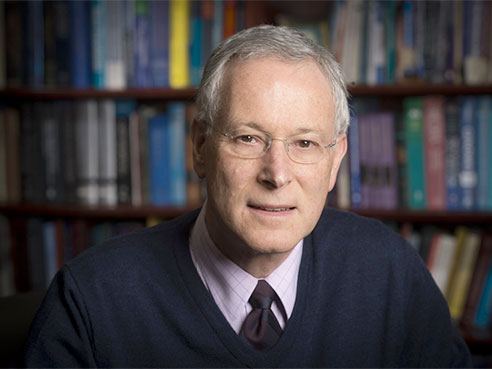 Bruce KorfThe University of Alabama at Birmingham and HudsonAlpha Institute for Biotechnology have been awarded a National Institutes of Health Ruth L. Kirschstein National Research Service Award to train postdoctoral fellows who have earned an M.D. and/or a Ph.D. The UAB-HudsonAlpha Genomic Medicine Research Training Program is designed to recruit trainees from various disciplines and provide mentorship and clinical research training in genomic medicine. At HudsonAlpha, the program will provide up to two years of support for postdoctoral trainees who choose to learn and work at the Institute.
Bruce KorfThe University of Alabama at Birmingham and HudsonAlpha Institute for Biotechnology have been awarded a National Institutes of Health Ruth L. Kirschstein National Research Service Award to train postdoctoral fellows who have earned an M.D. and/or a Ph.D. The UAB-HudsonAlpha Genomic Medicine Research Training Program is designed to recruit trainees from various disciplines and provide mentorship and clinical research training in genomic medicine. At HudsonAlpha, the program will provide up to two years of support for postdoctoral trainees who choose to learn and work at the Institute.
“I don’t think you can overemphasize the synergy between HudsonAlpha and UAB, which really is a unique aspect of the program,” said Greg Barsh, M.D., Ph.D. Barsh, a faculty investigator at HudsonAlpha, is a principal investigator for the grant along with UAB’s Bruce Korf, M.D., Ph.D. Korf is professor and chair of the Department of Genetics in the UAB School of Medicine and the director for the Heflin Center for Genomic Sciences at UAB.
“UAB is the major medical center for the entire state of Alabama,” Barsh said. “It’s a big, bustling place with a lot of clinical activity. HudsonAlpha was set up as a nonprofit genomics research institute, and we have developed an interest in genomic medicine ourselves. Bringing the two institutions together makes the training program possible, and this program is the tip of the iceberg in terms of what the collaboration between the two institutes can do to bring genomic medicine to practice.”
Totaling $1,062,676 over five years, the NIH grant — known as a T32 grant — is the first of its kind to be awarded to a program that emphasizes both research and medical training in genomic medicine. More information about eligibility for the program is available on the official program website.
“We expect that our trainees will be working on projects that will enhance our ability to incorporate genomics into medical practice and to get firsthand experience in implementation,” Korf said. “The program is also developing an approach to education that will be useful to clinical and laboratory scientists across a broad spectrum of medical disciplines, which will be critical as genomics is integrated across all areas of medicine.”